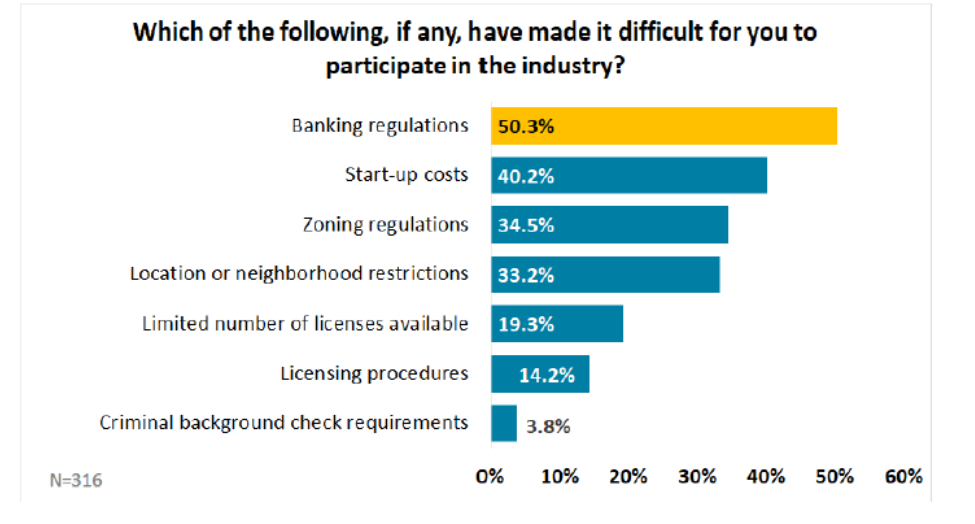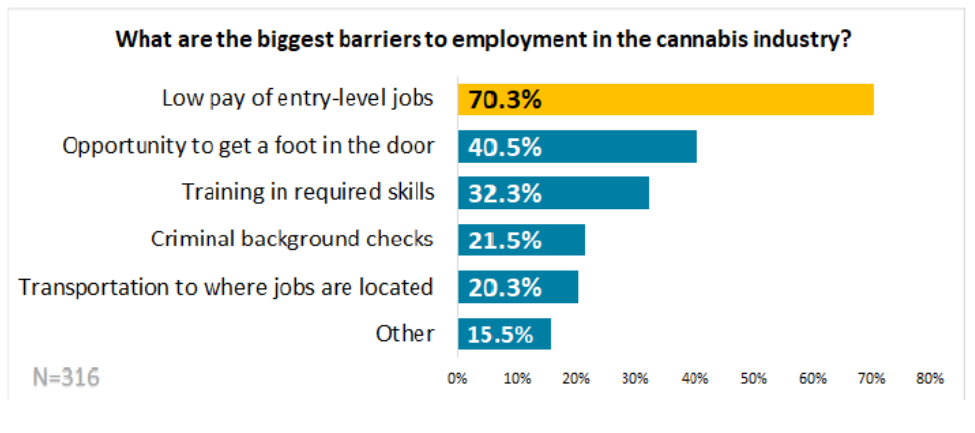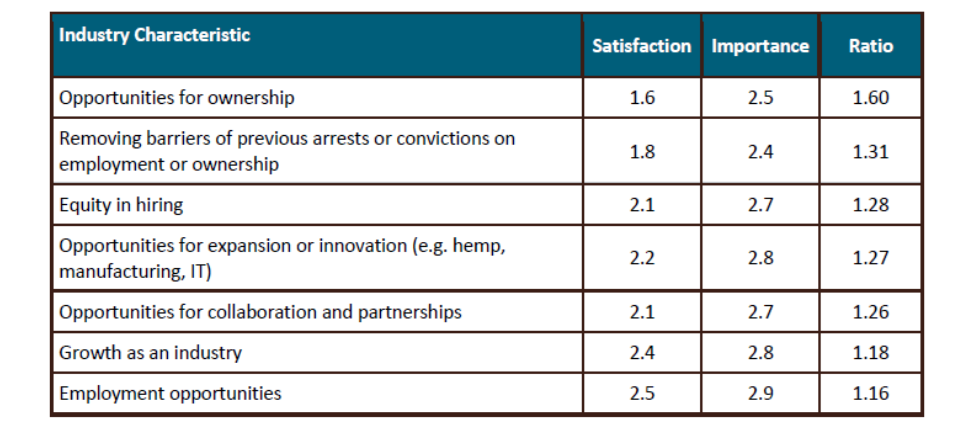New Study of Diversity and Opportunity in Denver’s Marijuana Industry
In June 2020, the Denver Department of Excise and Licenses released a new report on opportunity in the Denver area marijuana industry. The full Cannabis Business and Employment Opportunity Study is available here.
Using a survey of participants in the local marijuana industry, the report seeks to identify the extent to which different factors – like criminal background checks or access to capital – affect entry into and upward mobility in the industry. The survey results have obvious relevance to diversity in the marijuana industry.
I cannot vouch for the soundness of the survey methodology – some of the questions posed seemed unclear to me, and the report’s authors acknowledge that the survey respondents may not be representative of the industry more generally (or even Denver specifically). But let me highlight three results from the survey that caught my eye.
The first chart below (copied from page 22 of the report) displays the percentage of respondents who indicated whether each of several factors had made it difficult to own a marijuana business. (At least, that’s what I think the question means. The report doesn’t explain what “participation” means here, but given the barriers listed, e.g., zoning regulations., and the fact that the next chart is about barriers to employment, I assume this chart is about participation qua ownership.)

From my read of the data, it looks like financial barriers (banking and start up costs) were the biggest obstacle to owning a marijuana business, followed by zoning restrictions (zoning and location restrictions). Interestingly, very few (3.8%) mentioned background checks as a barrier.
The next chart (from page 23) is similar. It shows respondents’ opinions of the biggest barriers to employment in the marijuana industry.

Oddly, the first item is low pay, which I don’t really think of as a barrier to employment, so much as a lack of desirability of employment. In other words, it suggests you could get a job in the industry, but why would you want one? However, the other factors are more relevant (and interesting). For example, far more respondents cited criminal background checks as a barrier to employment (21.5%) than ownership (3.8%).
Lastly, the table below (from page 21) shows how respondents rated their satisfaction with certain characteristics of the Denver marijuana industry, as well as how much importance they place on each characteristic, both on a scale of 1-3 (with 3 being most satisfied or most important). The table also displays the ratio of importance to satisfaction, which the report suggests is a useful way to prioritize the characteristics Denver regulators should seek to address.

There is a lot more in the report (it runs 37 pages); you can read it in full by following the link at the top of the post.